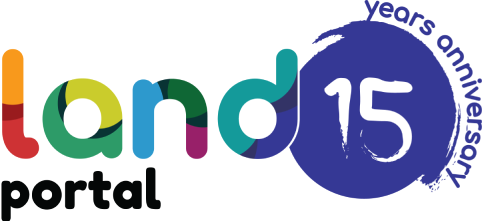ncreasing climate and conflict-related displacement in fragile or conflict-affected states threatens human security and sustainable development around the world. As forced displacement increases and becomes more protracted in length, destination areas—where displaced and host communities often have low adaptive capacity and live side by side, sharing resources related to land, food, and water systems—are particularly exposed to human security risks.
Search results
Showing items 1 through 9 of 12443.-
Library ResourceJanuary, 2023Italy
-
Library ResourceJanuary, 2023Iceland
-
Library ResourceJanuary, 2023Sweden
The integration of AI in agricultural management presents a world of opportunities and challenges. We have explored various aspects, from addressing inadequate information and limited capabilities to bridging the digital divide and concerns about job displacement. As we navigate this transformative journey, it is essential to prioritize the user, embrace human-centered design, and ensure that AI-powered solutions are not only feasible but also sustainable for farmers in diverse regions.
-
Library ResourceJanuary, 2023Italy
In the last 25 years, almost 50Â million hectares of primary forest have been lost due to deforestation. Numerous international initiatives such as the Bonn Challenge and the New York Declaration on Forests have set ambitious goals to restore degraded and deforested lands by 2030. Realizing global commitments on forest and landscape restoration (FLR) will require the establishment of billions of trees on millions of hectares of degraded land to address the triple crisis of biodiversity loss, climate change and failing food systems.
-
Library ResourceJanuary, 2023France
The Breakthrough Agenda was launched by 45 world leaders at COP 26 and is a commitment to work together this decade to accelerate innovation and deployment of clean technologies, making them accessible and affordable for all this decade. To kick-start this Agenda, countries endorsed Breakthrough goals to make clean technologies and sustainable practices more affordable, accessible and attractive than their alternatives by 2030 in the power, road transport, steel, hydrogen and agriculture sectors.
-
Library ResourceJanuary, 2023Germany
Biophysical models are key to inform management activities that can restore degraded soils and ultimately improve biomass production and soil organic carbon (SOC) sequestration. Within East Africa several studies have been conducted to evaluate models in annual cropping systems, and to quantify the impacts of different agronomic management options on soil organic carbon and yields. However, no modelling studies exist on perennial forage grasses, which are important for mixed-crop livestock systems within the region.
-
Library ResourceJanuary, 2023Germany
This study analyses the impact of high-quality nutritional grasses in feeding on beef cattle in farms from Córdoba Department, Colombia. The low productivity and high environmental impact associated with beef farming in the region make it necessary to implement sustainable intensification strategies that increase animal yield and mitigate climate change.
-
Library ResourceJanuary, 2023Germany
In Colombia, milk yield gaps among dairy systems are large and farms with better feed quality and sustainable cattle management practices are more productive. Cattle farming is responsible for about 15% of the Colombian greenhouse gas emissions (GHGE), therefore, sustainable mitigation strategies for dairy farms can help to reduce the climate impact. Silvo-pastoral systems (SPS) and improved pastures (IP) are recognised strategies to transform dairy systems by enhancing cattle productivity, reducing climate change impact, and increasing farm profitability.
-
Library ResourceJanuary, 2023Germany
The Orinoquia region in Colombia is home to diverse ecosystems, including forests and various agroecological zones, but extensive cattle ranching poses a significant challenge as it contributes to deforestation and threatens the region's valuable forest resources. To address this issue, there is a growing interest in promoting low-carbon land use and practices that increase adaptation and resilience to climate change. Climate-smart cattle farming (CSCF) integrates adaptation, resilience, and mitigation strategies to ensure sustainable and profitable productivity.
-
Library ResourceJanuary, 2023Germany
Leucaena diversifolia (Ld) is a legume species that has received little attention in terms of its nutritive value, methane (CH4) emissions, and impact on meat quality. To address this gap, a study was conducted to compare the performance, CH4 emissions, and fatty acid content of steers grazing on a monoculture of tropical grass Urochloa hybrid cv. Cayman versus a combination of Cayman and Ld.
Land Library Search
Through our robust search engine, you can search for any item of the over 64,800 highly curated resources in the Land Library.
If you would like to find an overview of what is possible, feel free to peruse the Search Guide.

